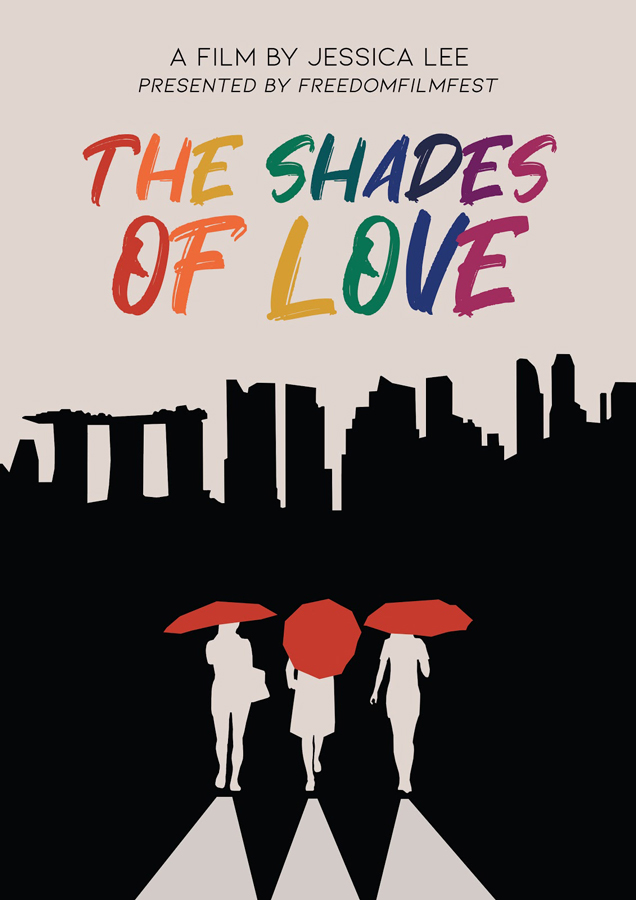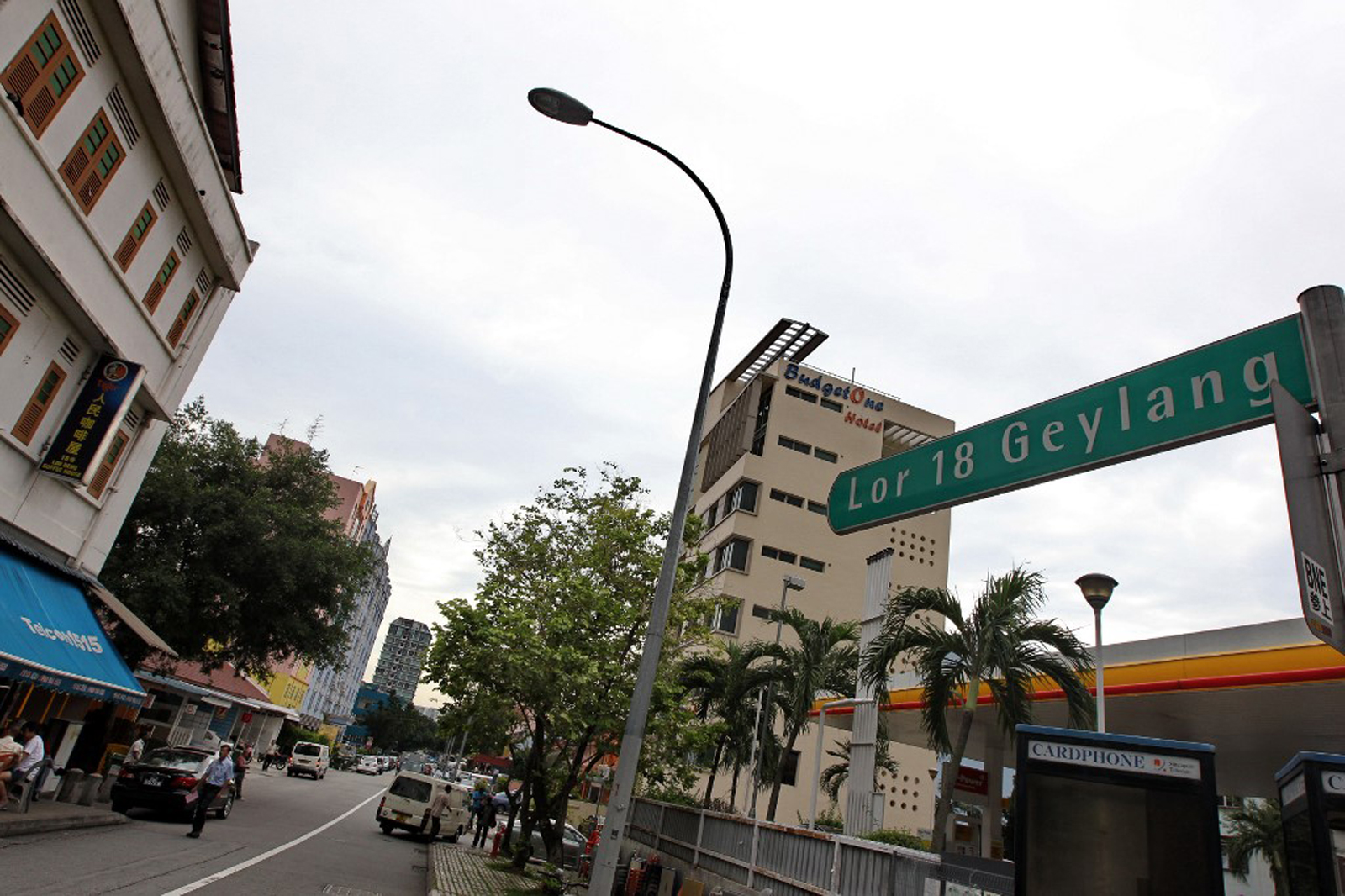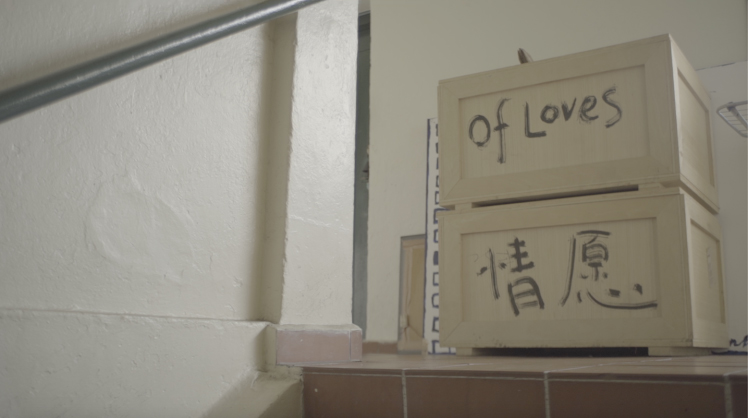At first glance, Singapore appears simply as a modern metropolis with a bustling tourist industry. In a normal year, the city-state welcomes millions of foreigners eager to visit its pristine streets and glitzy glass-panelled buildings. No part of the city is off limits for exploration – after all, “ghettos” aren’t supposed to exist in Singapore.
But if one were to string the words “Geylang” and “night-life” together, it’s not unlikely for scathing stares and hushed remarks of disapproval to be elicited. Foreigners who are oblivious to what this suggestion really entails may still receive a pass, if not a side-eyed glance.
To Singaporeans, Geylang is most commonly known as the country’s red light district. While legal brothels in Geylang are permitted to operate, sex work in Singapore remains a murky, grey area where only workers employed by licensed brothels are covered by the law. Other forms of sex work, such as public solicitation, additional services provided at massage parlours and various activities that engage workers not under the so-called “yellow card system” of brothel licensing are considered underground activities that could be subject to raids by authorities.
For Singaporean filmmaker Jessica Lee, it was this ambiguity, coupled with the general lack of attention paid to the city-state’s sex industry, that drew her to produce a short film on the topic. Titled The Shades of Love, Lee’s film aims to capture the intimate journey of three Singaporean sex workers. Through a series of personal interviews, The Shades of Love explores different facets of the quotidian lives of these workers, captured in their own stories and voices. Production was funded by a small grant from Malaysian human rights documentary film festival FreedomFilmFest, which will be digitally screening the film via CloudTheatre from 10-13 December.
Lee is no stranger to the film industry, and as a producer at the Singapore-based Beach House Pictures, she has developed films for household names including Netflix and National Geographic. This year, Lee returned to her city-state roots with The Shades of Love, which initially started as an independent passion project.

She explained the decision to dedicate a film to the lives of sex workers in Singapore through her attraction to underserved communities and telling their stories.
“When I was in India in 2017, I was working for an NGO that aimed to teach children from disadvantaged backgrounds about financial literacy. I was based in Mumbai, which has one of the world’s biggest red light districts, and got to meet a woman who saves girls who have been sex trafficked by teaching them about literacy skills so that they would not to be tricked into sex work again,” Lee told the Globe. “Because Singapore is so advanced, I never thought about bringing the issue back to my home country.”
The sex workers also told me that they would only eat one meal a day to save money, and that they often had to close shop and go home because there were no clients
But when the Covid-19 pandemic struck, Lee began to think more deeply about marginalised and underserved communities in Singapore. She began to re-evaluate her understanding of its sex industry, which ultimately served as a catalyst for The Shades of Love.
“There was a lot of talk about front-line workers and paying our respects to them. But sex workers were literally putting their lives on the line to work too,” Lee said. “It was this curiosity to find out how they were affected that led me to reach out to Project X and everything else that followed.”
Sex workers in Singapore existed in the shadows for decades as a result of successive government campaigns to eliminate “yellow culture” – referring to what it deemed decadent behaviour like gambling, corruption and pornography – lasting from the 1950s to the late 1970s.
This resulted in more underground brothels being established, which in the 1960s prompted a strategy of containment as the government struck a discreet agreement with brothel owners where the authorities would agree to turn a blind eye if they moved from residential areas to red-light districts. This marked the beginning of the current extra-legal regulation that frames Singapore’s current sex industry.
While legal brothels exist today in Singapore, solicitation beyond them remains a criminal offence. But this convoluted and murky historical evolution of sex work is not an oft-told story in the city-state.
Today, Project X is the only non-profit organisation in Singapore that provides social, emotional, and health services to sex workers. Established in 2008, the organisation aims to help Singapore’s estimated 10,000 active sex workers, who are often targets of abuse and exploitation, by providing them with a community and support network. This form of aid has been especially pertinent during the pandemic, where groups of sex workers have experienced a decline in clientele and available work. This has led to licensed foreign sex workers finding themselves stuck in Singapore due to travel restrictions, as well as Singaporean and Permanent Resident sex workers losing their homes because of a loss of income.
This reality was observed by Lee during the production stages of The Shades of Love.
“When I walked into [the sex workers’] work places to interview them for the film, I could instantly tell that business had taken a plunge,” Lee shared. “I would say it dropped by 90%. They usually had 10 to 20 clients a day, but it had dropped to one or two, especially when the virus reared its ugly head in March and April. The sex workers also told me that they would only eat one meal a day to save money, and that they often had to close shop and go home because there were no clients.”
However, Lee found that it wasn’t just economic fears that sex workers faced during the pandemic.
“The sex workers were afraid that their clients would spread the virus, so they had to take [their] temperatures, sanitise their hands, ensure that they showered before going to the hotel,” Lee said. “There were many things that these sex workers had to do to protect their health.”

If there were more opportunities given to them and less judgement placed on them purely because they are transgender, they could go on to do many other things
The early months of the pandemic interrupted Lee’s usual filming patterns, leaving her “stuck at home” during Singapore’s circuit breaker lockdown that started in April.
“During this time, I ended up talking a lot to Project X and the sex workers to find out how they were doing,” she said.
Forging a closer connection with the sex workers featured in the film helped Lee better understand the personal struggles they faced as sex workers. One sex worker featured in the film, Bunny, identifies as transgender, and arguably faces more difficulties because of her gender identity.
“Bunny told me that many transgender sex workers don’t have the opportunity to finish their formal education, so she hopes to do that and be a symbol by paving the way,” Lee said. “Many transgender sex workers are drawn to sex work because they are unable to find occupations in other spaces. If there were more opportunities given to them and less judgement placed on them purely because they are transgender, they could go on to do many other things. These sex workers are smart, eloquent, funny … In any other circumstance, they would thrive in whatever they do.”
The Shades of Love thus aims to cast a light on the reality that this industry is more than just having “senseless sex”, as mentioned by a sex worker featured in the film. According to Lee, sex work involves the difficult and laborious task of building an emotional connection with clients, who often find themselves seeking company because of something that is lacking in their own lives.
The challenges that clients of sex workers face also open the door to discussions about sex and intimacy amongst all Singaporeans. In a country where everyday conversations surrounding these topics are often viewed as taboo, understanding the social issues underlying the sex industry serves as a springboard to discussions on the stigmatisation of sex in the city-state, as well as how Singaporeans can foster a greater sense of openness on these topics.

Ultimately, says Lee, the film provides a window of opportunity for greater learning and exploration – not just about Singapore’s sex industry, but also about what it means to have empathy for others.
“Imagine living your life having to hide what you do for a living from the ones you love most because of the fear of people not accepting you. That’s always the harshest rejection. That’s something I carried away with me from these interviews,” Lee reflected.
“But more importantly, this experience has taught me to never assume. As a filmmaker, I always try to embody the idea that you should try to step into someone else’s shoes and walk around in them,” she said. “In the case of sex workers, or of any other marginalised or underserved community on the periphery, just reach out and spend time with them to understand them more. You’ll begin to realise that we’re actually more similar than different.”


